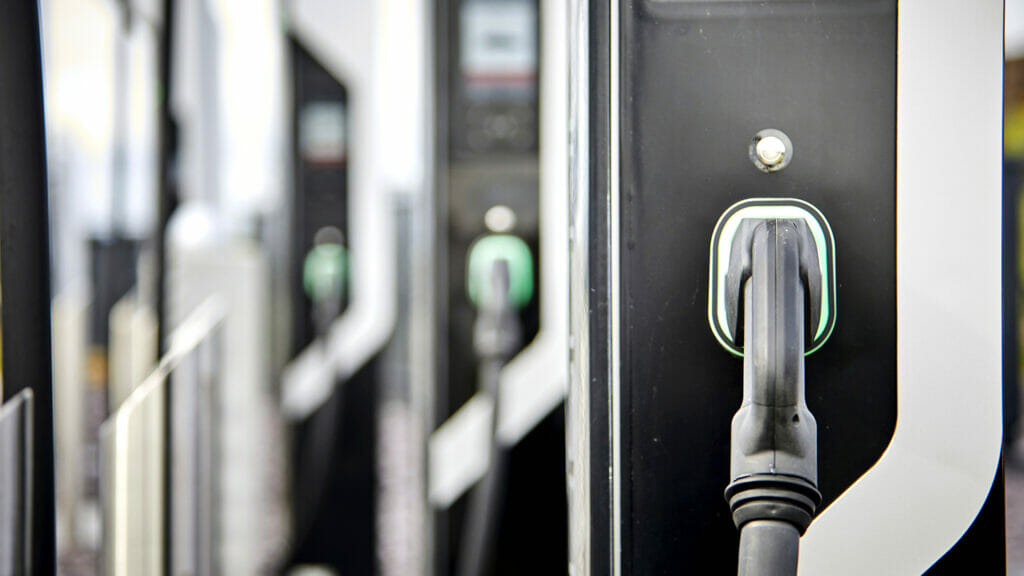
If senior living operators don’t already have electric vehicle charging stations at their communities, they’re thinking about adding them, according to the results of the latest Ziegler CFO Hotline survey.
Adding electric vehicle charging stations and solar panels to a campus are among the green and sustainable initiatives not-for-profit senior living operators are adopting.
In the survey of almost 180 senior living operators, 40% indicated that their campuses have those charging stations, with another 15% saying they are in the process of installing them. Multi-site operators that have electric vehicle charging stations have installed them at an average of 59% of their campuses.
All of the communities that have the charging stations make them available to residents, but only 55% make them available to staff members, and 49% offer availability of a charge to guests. Approximately 55% of communities with charging stations don’t charge for their use, whereas 45% impose some type of fee.
Interestingly, only 15% of respondents indicated that their communities have electric vehicles in their own fleets.
Only 16% of respondents indicated that their electric vehicle charging station installations were fully or partially covered by grants or other funding.
Solar power gaining traction
Fewer senior living communities are investing in solar panels compared with electric vehicle charging stations.
According to the survey, 81% of respondents do not have this technology, but almost 20% either have solar panels on campus (13%) or are planning to install them soon (6%).
Multi-site operators that have solar panels indicated they have them at an average of 36% of their communities.
Communities in the West lead the country in both electric vehicle stations (60%) and solar panels (29%). Communities in the Midwest are the least likely to have electric vehicle charging stations (18%), and communities in the South are least likely to have solar panels (6%).
Among the other green initiatives that respondents said their communities have adopted are reusable dining containers, LEED and WELL certification, composting, energy-efficient appliances, drought-tolerant landscapes, geothermal heating and air conditioning, energy efficient lighting and recycling initiatives.


